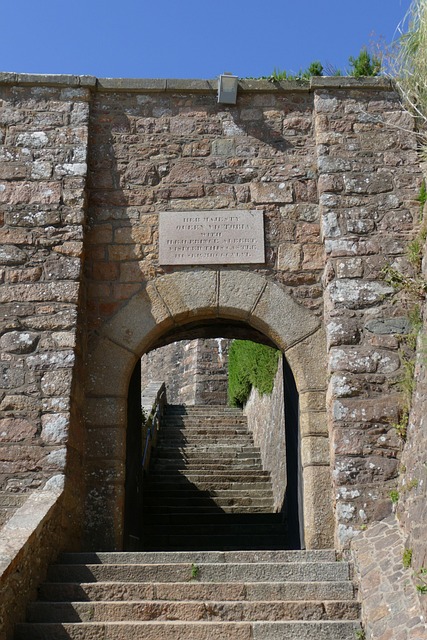Victims of clergy abuse in New Jersey face unique challenges but have legal protections. Recognizing patterns like manipulation and control is key, and reporting abuse is crucial. Specialized clergy abuse lawyers guide survivors through complex laws, offering criminal prosecution, civil litigation, and support services. Choosing an experienced attorney with expertise in state laws and church governance ensures justice and discretion. Local and national organizations provide healing resources, legal assistance, and advocacy for survivors, promoting recovery and systemic change.
“In recent years, the issue of clergy abuse has garnered significant attention, with many survivors in New Jersey seeking justice. This comprehensive guide delves into the complex world of spiritual exploitation and its legal ramifications. We explore red flags and patterns to help identify abusive situations, emphasizing the critical role of understanding one’s rights.
For those ready to take action, we provide insights on navigating New Jersey’s legal system, choosing the right clergy abuse lawyer, and outlining the steps involved in the legal process. Additionally, support resources are highlighted for victims seeking healing.”
Understanding Clergy Abuse: Recognizing the Patterns and Red Flags
In the context of clergy abuse, recognizing patterns and red flags is crucial for victims seeking justice in New Jersey. Clergy abuse can take various forms, including emotional manipulation, sexual assault, or any form of misconduct by religious leaders within their community. Understanding these patterns involves identifying consistent behaviors such as isolation from family and friends, intense control over the victim’s life, and the use of guilt or fear to maintain power. Red flags may also include sudden changes in behavior, secrets kept from others, or a history of similar allegations against the clergy member.
Victims often face unique challenges when coming forward due to the sensitive nature of the relationship between clergy and their congregations. They might experience feelings of shame, fear, or doubt about their experiences. A competent New Jersey clergy abuse lawyer can help victims navigate these complexities by providing legal counsel tailored to their specific situations. These professionals are equipped to guide victims through the legal process, ensuring they receive the support and justice they deserve.
Legal Rights of Survivors: Navigating New Jersey's Laws and Protections
Survivors of clergy abuse in New Jersey have specific legal rights and protections available to them. Understanding these laws is crucial for those seeking justice and healing. A clergy abuse lawyer in New Jersey can guide survivors through the complex legal landscape, ensuring their rights are upheld. The state has established statutes that set forth clear guidelines regarding sexual misconduct by religious leaders, providing a framework for accountability and compensation for victims.
These laws offer support through various means, including criminal prosecution, civil litigation, and support services. New Jersey’s legal system recognizes the unique challenges faced by survivors of clergy abuse, aiming to foster an environment where victims feel empowered to come forward and seek redress. With the assistance of a specialized lawyer, individuals can navigate this process, access available resources, and work towards securing justice for the harm they have endured.
Choosing the Right Lawyer: What to Look for in a Clergy Abuse Attorney in New Jersey
Choosing the right lawyer is a crucial step in any legal case, especially sensitive matters like clergy abuse in New Jersey. When seeking representation for such cases, individuals should look for attorneys who specialize in this area and possess the necessary expertise. A dedicated clergy abuse lawyer in New Jersey will have an in-depth understanding of state laws, church governance, and the unique dynamics involved in these cases. They should be well-versed in handling sensitive information with discretion and compassion.
Consider attorneys who have experience navigating complex legal systems and a proven track record of successful outcomes. Look for professionals who actively listen to your concerns, provide clear communication, and offer a supportive environment. The right lawyer will guide you through the legal process, ensuring your rights are protected while advocating for justice. Their expertise can make all the difference in achieving a favorable outcome and providing closure or compensation for victims of clergy abuse.
The Legal Process: From Reporting to Trial, A Step-by-Step Guide for Victims
The Legal Process: From Reporting to Trial, A Step-by-Step Guide for Victims
If you’ve experienced clergy abuse in New Jersey, taking legal action can feel overwhelming. Understanding the process is a crucial first step. Here’s a simplified breakdown of what to expect when pursuing justice with a dedicated clergy abuse lawyer in New Jersey:
1. Reporting: The initial step involves reporting the abuse to local law enforcement and/or appropriate religious authorities, depending on the circumstances. This can be emotionally challenging, but it’s essential for starting the legal process and holding perpetrators accountable.
2. Consulting a Lawyer: Once reported, victims are encouraged to consult with an experienced clergy abuse lawyer in New Jersey. A qualified attorney will review the details of your case, offer guidance, and explain your legal options. They can also help navigate the complex laws surrounding clergy abuse cases.
3. Building a Case: Your lawyer will assist you in gathering evidence, interviewing witnesses, and constructing a strong case. This may involve requesting documentation from the church, medical records, or other relevant sources.
4. Filing a Lawsuit: If criminal charges are not pursued or if they fail, your lawyer can help file a civil lawsuit against the offending clergy member(s) and/or the institution responsible for their actions.
5. Pre-Trial Proceedings: This phase involves depositions, motions, and discovery – the process of exchanging information between both parties. Your lawyer will guide you through these steps to build a solid defense or prosecution strategy.
6. Trial: If the case goes to trial, your lawyer will present evidence and arguments before a judge or jury. They will fight for justice on your behalf, aiming to secure compensation and accountability for the abuse you endured.
Support Resources: Local and National Organizations Empowering Survivor Healing
In the wake of experiencing clergy abuse, survivors in New Jersey can find solace and support through various local and national organizations dedicated to empowering healing. These resources offer a safe space for individuals to share their stories, gain access to legal assistance from experienced clergy abuse lawyers in New Jersey, and receive emotional support tailored to their unique needs. Many organizations provide counseling services, support groups, and educational resources to help survivors understand their rights and navigate the complexities of seeking justice.
National networks like the National Alliance of Sexual Abuse Survivors (NASAS) connect survivors with local chapters and offer online forums for sharing experiences and finding community. Additionally, state-specific initiatives like New Jersey’s Clergy Abuse Hotline provide immediate assistance, referral services, and legal aid to those affected by clergy misconduct. These organizations play a crucial role in fostering recovery and advocating for systemic change to prevent future instances of clergy abuse.





